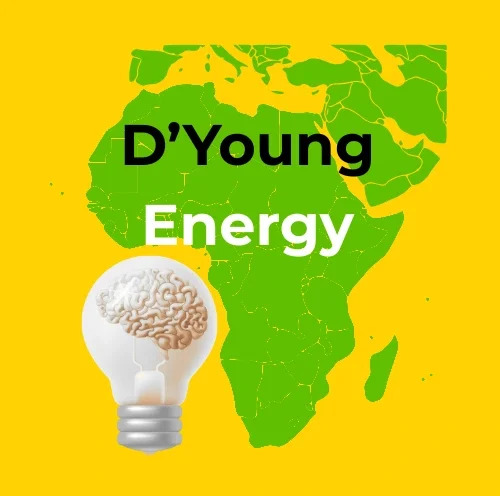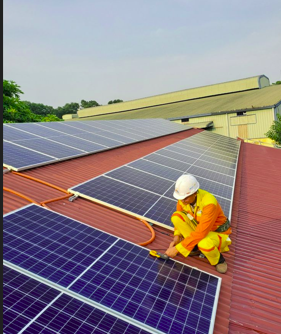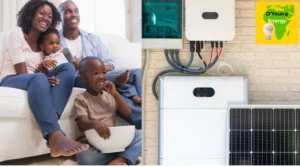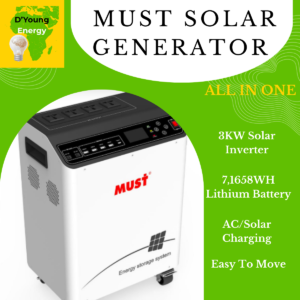As more Nigerians seek alternatives to the unreliable power supply and high fuel costs associated with generators, solar energy has become a popular choice. Solar power offers a cleaner, quieter, and more sustainable option for homes and businesses. However, many people face challenges during the solar system installation, which can affect the performance, longevity, and efficiency of these solar system. This article will explore 10 common issues encountered with solar system installations in Nigeria, providing insights into their causes, impacts, and potential solutions to ensure users get the most out of their investment.
Merits and Demerits of Solar System Installation: Causes and Effects of Installation Issues
The merits of solar system installations in Nigeria are numerous. Solar energy is a renewable source of power that harnesses the abundant sunlight available throughout the year. Once installed, solar systems provide 24-hour electricity, saving homeowners from the constant noise and pollution of generators. They also help reduce energy costs in the long term, as they eliminate the need for costly fuel. Additionally, solar energy reduces the country’s carbon footprint, contributing to environmental sustainability.
However, despite these benefits, there are several demerits associated with improper solar installations. If a solar system is not correctly designed or installed, users may face a range of issues that undermine the reliability and effectiveness of their investment. Here are 10 common issues:
-
Poor Quality Components
Many Nigerian homeowners, in a bid to cut costs, opt for cheaper, low-quality solar panels, inverters, and batteries. Poor-quality components may initially seem like a bargain but often lead to frequent breakdowns and low energy output. These cheaper materials degrade quickly, leaving users frustrated with inefficiencies and added repair costs.
-
Incorrect System Sizing
One of the most significant problems in solar installations is the mismatch between a home’s energy consumption and the size of the installed solar system. When systems are undersized, they can’t meet the power needs of the household, resulting in frequent power shortages. This leads users back to relying on generators, undermining the purpose of installing a solar system.
-
Shading and Poor Panel Placement
Solar panels need maximum exposure to sunlight to function efficiently. Improper placement of panels, such as installing them in areas that experience shading from trees, buildings, or other structures, greatly reduces their effectiveness. In Nigeria, many installers fail to consider shading factors, leading to reduced energy output.
-
Inexperienced Installers
A growing number of solar installation companies and technicians lack the proper expertise and experience to install systems correctly. Unqualified installers may not adhere to industry standards, resulting in faulty wiring, improper setup, or unsafe installations that may pose risks to homeowners.
-
Inadequate Battery Storage
Solar systems in Nigeria often rely on solar battery storage to provide electricity during the night or on cloudy days. A common issue is insufficient battery capacity, meaning the system cannot store enough energy to cover periods of low sunlight. This forces homeowners to either deal with power outages or revert to generator use.
-
Poor Wiring and Electrical Work
In some cases, installations suffer from shoddy electrical connections. Improper wiring can lead to energy loss, short circuits, or even fire hazards, endangering both the system and the home. Faulty wiring is a significant issue in rural areas where local installers may not have the technical knowledge to execute safe electrical work.
-
Lack of Proper Maintenance
Solar systems require regular maintenance to function optimally. Dust, dirt, and debris on the panels reduce efficiency, and battery and inverter systems need periodic checks to ensure they are working properly. In Nigeria, many people neglect maintenance, leading to reduced performance and a shorter system lifespan.
-
Weather Impact
Nigeria’s climate poses certain challenges to solar installations, particularly in regions prone to heavy rain, flooding, or extreme heat. If solar systems are not installed with these conditions in mind, they can suffer from water damage, panel overheating, or corrosion, which diminishes their durability and effectiveness.
-
Unrealistic Expectations
Many homeowners believe that solar systems can immediately solve all their power problems, expecting systems to provide 24-hour electricity without understanding the importance of system sizing, battery storage, and energy management. When these expectations are not met, they feel dissatisfied and perceive solar energy as unreliable.
-
Lack of User Education
Solar system owners often do not receive adequate training or education on how to use and maintain their systems. Without understanding how to manage energy usage or maintain equipment, users may unintentionally overload their systems, leading to performance issues or costly repairs.
These common issues cause frustration and reduce trust in solar energy solutions. Without addressing these problems, homeowners who switch to solar may experience increased costs, frequent power outages, and the need for costly repairs. The effects of poor installation or management practices can significantly reduce the anticipated savings and efficiency that solar energy should provide.
What the Government, Media, and People Can Do to Improve Solar Installations
To tackle the widespread issues affecting solar installations in Nigeria, various stakeholders must work together to improve the standards and practices surrounding solar energy adoption.
The Government
The Nigerian government plays a vital role in regulating the solar energy sector. First, it can develop and enforce installation standards that ensure only certified and experienced installers are permitted to work on solar projects. Secondly, the government can introduce financial incentives, such as tax rebates, subsidies, or low-interest loans, to make it easier for homeowners to invest in high-quality solar systems. This would reduce the tendency to buy cheap, substandard components. Finally, the government should establish solar training programs to improve the skill sets of local installers, ensuring better service delivery.
The Media
The media plays a key role in raising awareness about solar energy and educating the public on best practices for installations. Nigerian media outlets should run public awareness campaigns that inform people about the benefits of investing in quality solar components and hiring experienced installers. They can also feature success stories and case studies of individuals who have saved money and improved their power situation through proper solar installations. By doing this, the media can help shift public perception and encourage more widespread adoption of solar energy solutions.
Individuals and Communities
Homeowners must also take responsibility for making informed decisions when installing solar systems. Instead of focusing solely on initial costs, individuals should prioritize quality components and certified installers to avoid problems down the line. Communities can pool their resources to negotiate bulk purchases or hire experienced installers at a lower cost. Additionally, homeowners should be proactive in maintaining their systems to ensure optimal performance. By investing in regular maintenance, they can extend the lifespan of their systems and avoid costly breakdowns.
Conclusion
While solar energy holds immense potential to solve Nigeria’s ongoing power supply issues, common installation challenges can hinder its success. From poor-quality components and insufficient battery storage to unqualified installers and inadequate maintenance, these issues must be addressed for solar energy to become a viable long-term solution. By taking a more informed approach and working collaboratively, homeowners, the government, and the media can improve solar system installations in Nigeria. This will enable more people to enjoy the financial and environmental benefits of reliable, sustainable, and cost-effective energy. Proper installations not only offer significant savings but also help Nigeria reduce its dependency on generators and costly fuel, creating a brighter, cleaner future for all.




